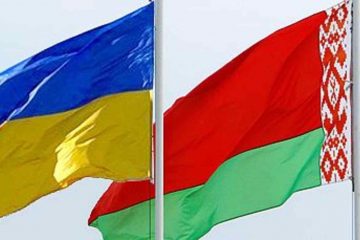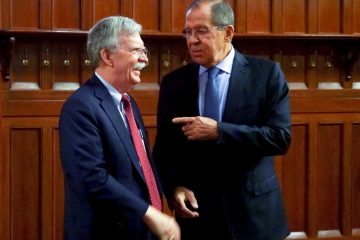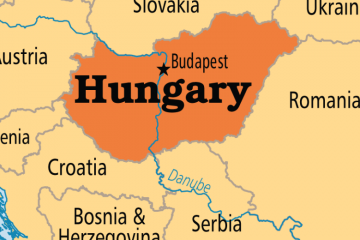Russian smugglers are scurrying to the aid of North Korea with shipments of petroleum and other vital supplies that could help that country weather harsh new economic sanctions, U.S. officials say in an assessment that casts further doubt on whether financial measures alone can force dictator Kim Jong Un to abandon his nuclear weapons program.
The spike in Russian exports is occurring as China — by far North Korea’s biggest trading partner — is beginning to dramatically ratchet up the economic pressure on its troublesome neighbor in the face of provocative behavior such as last week’s test of a powerful nuclear bomb.
Official documents and interviews point to a rise in tanker traffic this spring between North Korean ports and Vladivostok, the far-eastern Russian city near the small land border shared by the two countries. With international trade with North Korea increasingly constrained by U.N. sanctions, Russian entrepreneurs are seizing opportunities to make a quick profit, setting up a maze of front companies to conceal transactions and launder payments, according to U.S. law enforcement officials who monitor sanction-busting activity.
Such trade could provide a lifeline to North Korea at a time when the United States is seeking to deepen Kim’s economic and political isolation in response to recent nuclear and missiles tests. Trump administration officials were hoping that new trade restrictions by China — including a temporary ban on gasoline and diesel exports imposed this spring by a state-owned Chinese petroleum company — could finally drive Kim to negotiate an agreement to halt work on nuclear weapons and long-range delivery systems.
The U.N. Security Council late Monday approved a package of new economic sanctions that included a cap on oil imports to North Korea, effectively slashing its fuel supply by 30 percent, diplomats said. A U.S. proposal for a total oil embargo was dropped in exchange for Russian and Chinese support for the measure.
“As the Chinese cut off oil and gas, we’re seeing them turn to Russia,” said a senior official with detailed knowledge of smuggling operations. The official, one of several current and former U.S. officials interviewed about the trend, insisted on anonymity in describing analyses based on intelligence and confidential informants.
“Whenever they are cut off from their primary supplier, they just try to get it from somewhere else,” the official said.
The increase in trade with Russia was a primary reason for a series of legal measures announced last month by Justice and Treasury officials targeting Russian nationals accused of helping North Korea evade sanctions. Court documents filed in support of the measures describe a web of alleged front companies established by Russian citizens for the specific purpose of concealing business arrangements with Pyongyang.
While Russian companies have engaged in such illicit trade with North Korea in the past, U.S. officials and experts on North Korea observed a sharp rise beginning last spring, coinciding with new U.N. sanctions and the ban on fuel shipments in May by the state-owned China National Petroleum Corp. The smuggled goods mostly are diesel and other fuels, which are vital to North Korea’s economy and can’t be produced indigenously. In the past, U.S. agencies also have tracked shipments of Russian industrial equipment and ores as well as luxury goods.
Traffic between Vladivostok and the port of Rajin in North Korea has become so heavy that local officials this year launched a dedicated ferry line between the two cities. The service was temporarily suspended last week because of a financial dispute.
China, with its large shared border and traditionally close ties with Pyongyang, remains North Korea’s most important trading partner, accounting for more than 90 percent of the country’s foreign commerce. Thus, Beijing’s cooperation is key to any sanctions regime that seeks to force Kim to alter his behavior, current and former U.S. officials say.
Still, Russia, with its massive petroleum reserves and proven willingness to partner with unsavory regimes, could provide just enough of a boost to keep North Korea’s economy moving, allowing it to again resist international pressure to give up its strategic weapons, the officials said.
“Russia is now a player in this realm,” said Anthony Ruggiero, a former Treasury Department official who is now a senior fellow with the Foundation for Defense of Democracies, a Washington think tank. “The Chinese may be fed up with North Korea and willing to do more to increase the pressure. But it’s not clear that the Russians are willing to go along with that.”
The reports of Russian oil smuggling come as Moscow continues to criticize international efforts to impose more trade restrictions on North Korea. Russian President Vladimir Putin, during a joint news conference Wednesday with South Korean leader Moon Jae-in, pointedly refused to support new restrictions on fuel supplies for the North.
“We should not act out of emotions and push North Korea to a dead end,” Putin said, according to South Korean media accounts of the news conference.
Rare insight into exactly how Russian firms conduct business with Kim’s isolated regime can be gleaned from the court papers filed last month to support new sanctions against Russian nationals accused of supplying diesel and other fuels to North Korea. The papers describe in detail how one company, Velmur, was set up by Russian operatives in Singapore to allegedly help North Korea purchase millions of dollars’ worth of fuel while keeping details of the transactions opaque.
Velmur was registered in Singapore in 2014 as a real estate management company. Yet its chief function appears to be “facilitating the laundering of funds for North Korea financial facilitators and sanctioned entities,” according to a Justice Department complaint filed on Aug. 22. The company has no known headquarters, office space or even a Web address, but rather “bears the hallmarks of a front company,” the complaint states.
According to the documents, Velmur worked with other Russian partners to obtain contracts this year to purchase nearly $7 million worth of diesel fuel from a Russian supplier known as IPC between February and May. In each case, North Korean operatives wired the payments to Velmur in hard currency — U.S. dollars — and Velmur in turn used the money to pay IPC for diesel tanker shipments departing the port of Vladivostok, the documents show.
“The investigation has concluded that North Korea was the destination” of the diesel transshipments, the Justice Department records state. “As such, it appears that Velmur, while registered as a real estate management company, is in fact a North Korean financial facilitator.”
Officials for Velmur could not be reached for comment. Russian Deputy Foreign Minister Sergei Ryabkov, reacting to the U.S. court filing last month, dismissed the sanctions policy as futile, while declining to address specific allegations about sanctions-busting by Russian individuals.
“Washington, in theory, should have learned that, for us, the language of sanctions is unacceptable; the solution of real problems is only hindered by such actions,” Ryabkov said. “So far, however, it does not seem that they have come to an understanding of such obvious truths.”
U.S. officials acknowledged that it may be impossible to physically stop Russian tankers from delivering fuel shipments to North Korean ports, as long as the Putin government grants tacit approval. But the United States enjoys some leverage because of the smugglers’ preference for conducting business in dollars.
When Justice Department officials announced sanctions on Russian businesses last month, they also sought the forfeiture of millions of dollars in U.S. currency allegedly involved in the transactions, a step intended as a warning to others considering trading with North Korea. Black-market traders tend to shun North Korea’s currency, the won, which has been devalued to the point that some Pyongyang department stores insist on payment in dollars, euros or Chinese renminbi.
“There are vulnerabilities here, because the people North Korea is doing business with want dollars. It was dollars that the North Koreans were attempting to send to Russia,” said Ruggiero, the former Treasury official. “The Russians are not about to start taking North Korean won.”
David Filipov in Moscow contributed to this report.





Comments